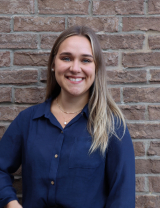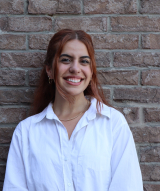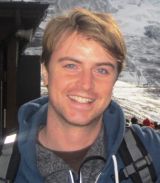Meet the Team!

Dr. Shane Sweet, Director ![]()


The overarching goal Dr. Sweet’s research is to develop a deeper understanding of programs and interventions to assist people with a physical disability to participate in daily and social activities. To achieve these goals, Dr. Sweet focused on two streams: (1) adapted physical activity and (2) spinal cord injury (SCI) peer support.
Stream 1: Adapted Physical Activity
The focus of the adapted physical activity stream is to build an understanding of the process to help people with a physical disability engage in physical activity while identifying and testing solutions to overcome important physical activity barriers. Dr. Sweet and his team of undergraduate and graduate students and research assistants lead multiple projects in collaboration with community-based partners who are knowledge users, such as community-based organizations and people with a physical disability.
Stream 2: Spinal Cord Injury Peer support
Dr. Sweet leads a pan-Canadian community-university partnership that unites students, researchers, and community-based organizations that are inspired to better understand, promote, and optimize spinal cord injury peer support programs and services (www.mcgill.ca/scipm). This partnership has defined spinal cord injury (SCI) peer support as a peer interaction that aims to help individuals who share similar lived experiences adapt and/or thrive.
Tayah Liska, PhD Candidate

Hometown: Stittsville, Ontario
Education: Bachelor of Science in Human Kinetics with Honours, St. Francis Xavier University (2019), Masters of Arts in Kinesiology, McGill University (2021).
Research Interest: As someone who is an athletic and sports enthusiast, I have always had a great interest in physical activity, exercise, sport, and health promotion. Over my graduate education, I have gained a particular interest in understanding the ways in which individuals with physical disability maintain their physical activity. Identifying key features of physical activity maintenance is part of my broader interest of positive health promotion and I am motivated to identify new and relevant ways to support individuals in their on-going physical activity participation and healthy living to improve their overall quality of life.
Personal Interest: Outside of the lab, I enjoy participating in my favourite sports and activities that include swimming, running, alpine skiing, paddling, and more. When not active outside, I’m spending time with family and friends, reading a new book, or planning my next travel destination!
Gabrielle Bedard, PhD Student

Hometown: Ottawa, Ontario
Current Education: First year PhD student in Kinesiology Sciences (McGill University)
Degrees: Master of Arts in Exercise and Health Psychology (McGill University) and Honours Bachelor in Human Kinetics (University of Ottawa)
Research Interests: Enhancing Academic Success and Well-Being through Peer Coaching and Behavior Change Strategies among University Students with Disabilities (PhD Thesis). Other Interests: Health Psychology, Behaviour change, Well-Being, Physical Activity, Disabilities, Coaching and Education, EMA/ESM, Multi-level Modeling, Phenomenological Narrative Analysis.
Personal Interest: Physical activity & sports, food and exploring cafes/restaurants in Montréal, socializing with friends and family, reality TV, and travelling.
Natara Ng, Master's Student

Hometown: Chelsea QC
Education: BSc (Hons.) Specialization in Kinesiology, Queen’s University
I am a first-year master’s student in the TIE Lab. Previously, I obtained an honours BSc in Kinesiology from Queen’s University, where I first gained interest in health promotion and exercise psychology through involvement in research. These research experiences led me to the TIE Lab, where I am excited to explore physical activity behaviour for health and wellbeing for people of all abilities. Outside of academics, I enjoy running, playing the fiddle, and adventuring in the outdoors with friends and family!
Lily White, Master's Student

My name is Lily, and I am from Bradford, Ontario. I am currently a second year Master’s student in the TIE Lab. While completing my Honours undergraduate degree in Psychology from the University of Guelph, I developed an interest in qualitative research and work driven with the goal of improving the well-being of individuals with disabilities. With the TIE Lab, my Master’s thesis follows the work done in partnership with Canadian community-based SCI organizations. My project looks to understand the implementation of an evaluation tool designed to help these organizations evaluate and optimize their peer support programs. Outside of school, you can find me exploring the city, discovering new cafes, and playing around with my style!
Elizabeth Dorvil, Master's Student 

Hi, my name is Elizabeth! I’ve previously completed a bachelor’s degree in Kinesiology at McGill University. I was introduced to the TIE lab with an undergraduate practicum, which quickly fostered my interest in conducting research, particularly around emphasizing and improving quality of life and access to appropriate care for Black, Indigenous, and People of Colour (BIPOC) with disabilities. I’m really looking forward to pursuing my research interests as a master’s student in the TIE lab. As a Montrealer through and through, I love trying out new kinds of foods, reading, going on various adventures around the city, and spending time with friends and family in my spare time. You can also regularly find me browsing at a thrift store near you!
Nour Saadawi, Research Assistant

My work in the TIE Lab focuses on bridging research and practice by collaborating with community partners to promote physical activity for people with disabilities. I have conducted my master’s research in partnership with community organizations, developing and testing training modules in motivational interviewing, behaviour change techniques, and adapted physical activity for kinesiologists. Additionally, I work as a kinesiologist at Fitness Access McGill (FAM), providing personalized fitness support for staff and students with diverse needs.
Alumni
Olivia Pastore, PhD '24 
Supervisor: Dr. Shane Sweet
Thesis Title: Understanding and reducing compassion fatigue using the compassion fatigue resilience model and self-compassion in peer mentors of Canadian spinal cord injury community service organizations
Zhiyang (George) Shi, PhD '24 
Supervisor: Dr. Shane Sweet
Thesis Title: Implementation of Spinal Cord Injury Peer Mentorship Programs in Rehabilitation Settings
Jacques Comeau, Research Assistant '23 
Nour Saadawi, M.A. '23
Supervisor: Dr. Shane Sweet
Thesis title: Optimizing Staff Training to Improve Adapted Physical Activity Service Provision for Two Community Organizations: Co-Construction and Implementation Evaluation
Meaghan Osborne, M.A. '22
Supervisor: Dr. Shane Sweet
Thesis Title: Implementation Evaluation of a Pilot RCT: The Roles of Peers and Functional Tasks in Enhancing Exercise Training for Adults with Chronic Obstructive Pulmonary Disease
Dr. Jordan Herbison, Post-Doctoral Fellow '22
Dr. Herbison was a post-doctoral fellow the TIE Lab from 2021 to 2022. As a post-doctoral fellow, Dr. Herbison used his expertise in group dynamics and ecological sampling methods in two areas: 1) To help develop guiding resources for establishing quality powerchair sport programs in Canada, and; 2) To better understand the risk and protective factors contributing spinal cord injury (SCI) peer mentors’ well-being in SCI peer mentorship programs. Dr. Herbison is now a Professor at Vancouver Island University.
Emilie Michalovic, PhD '21
Supervisor: Dr. Shane Sweet
Dissertation title: Participation in daily and social activities in individuals living with COPD: The role of peer support and physical activity
Pierre Lepage, Research Assistant
Supervisor: Dr. Shane Sweet
Research Interests: Adapted physical activity and the impact of peer-mentorship in physical activity interventions.
Natasha Kaushik, M.A. '20
Supervisor: Dr. Shane Sweet
Thesis title: Exploring the physical activity experiences of women with a physical disability in India
Dr. Nianhong Li, visiting professor '20
Research Interests: Sports psychology, Exercise and health psychology, particularly in the field of physical activity and psychological health promotion research among the adolescent, the elderly and the drug withdrawal population.
François Jarry, M.A. '19
Supervisor: Dr. Shane Sweet
Thesis title: The effect of model similarity on exercise self-efficacy among adults recovering from a stroke
Meredith Rocchi, Postdoctoral Fellow
Dr. Meredith Rocchi started her postdoc at the TIE lab in August 2016 and completed it in December 2019. She actively engaged in multiple research projects in the lab and provided fellow students with mentorship. Now, Meredith is an assistant professor at the University of Ottawa.
Samantha Taran, M.Sc. '15, PhD Candidate '18
Supervisor: Dr. Shane Sweet
Research Interests: Understanding what psychological and physiological factors contribute to sedentary behavior in order to develop an evidence-based intervention to reduce sedentary behavior in the aging population; health promotion in older adults; quality of life in older adults.
Jeff Caron, Postdoctoral Fellow
Dr. Jeff Caron was a postdoctoral fellow in the TIE lab from 2016 to 2018. During that time he worked with both Dr. Sweet and Dr. Duncan. In Dr. Sweet’s lab, the main project that Jeff worked on was funded by the Canadian Disability Participation Project. Specifically, he and the team developed of a measure of experiential aspects of participation (MeEAP). While in Dr. Duncan’s lab, Jeff was the Project Director for an International Olympic Committee-funded grant that examined the effects of a videogame intervention to prevent doping and the use of supplements in sport. Jeff is now an Assistant Professor in the School of Kinesiology and Physical Activity Sciences at Université de Montréal.
Keryn Chemtob, M.A. '17
Supervisor: Dr. Shane Sweet
Thesis title: Using tele-health to enhance leisure time physical activity and motivation in adults with spinal cord injury: A pilot randomised control trial
Chelsey Saunders, M.A. '16
Supervisor: Dr. Shane Sweet
Thesis title: Physical Activity and Well-being Post-Cardiac Rehabilitation: Adopting the Empirical Model of Well-being
